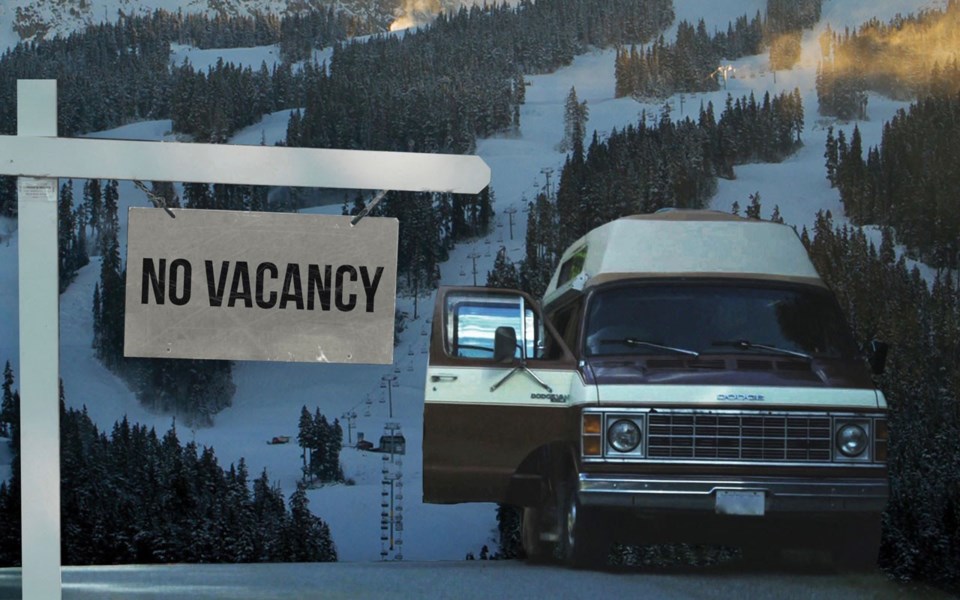When Trevor Meyer took a work transfer up to Whistler from the Lower Mainland, he was excited.
"Then I came up here and thought, 'Oh wow. This is going to be more difficult than I thought,'" he says.
At first, he thought he might be able to purchase a home, but quickly ruled that out when he saw housing prices—and ended up renting in Squamish instead.
"I don't want to live in a shared bedroom with another person. I'm not young; I'm older, I have a son. A lot of the younger people who live up there, that's cool for them. But I want people to realize what you're really getting into when you come up to Whistler," Meyer says.
While Whistler's housing crisis might not be new, Meyer is hoping to delve into the topic in a deeper way with a documentary. To that end, he and a team of three friends have pitched Whistler Bound as part of Storyhive, a program run by Telus that awards funding to filmmakers. The next installation will focus on documentaries.
Meyer's team made it through the first round of pitching thanks to a film trailer that features interviews from locals weighing in on the positives and negatives of Whistler living.
Next up, they'll attempt to solicit votes from the public starting on July 30 with the hope of earning a $50,000 production grant. (Industry experts will choose 15 to fund while voting will determine who earns grants for another 15 projects.) The winning projects will be shown on various Telus platforms next summer.
"For me personally, I would love to transform into being a full-time filmmaker," Meyer says. "If I was to get a grant of this amount, it's something I could think about taking that leap to do. If someone says, 'We think you have what it takes to make a film' it would give me confidence. This is my passion."
That passion has fuelled a handful of low-budget films—including a crowd-funded horror film called Lure. But Meyer hopes to take his hobby to the next level with more substantial funding.
If his team wins, they plan to create a documentary that looks both at his struggle with Whistler housing—he's been commuting for 14 months from Squamish and can see himself returning to the Lower Mainland because of it—and follows a newcomer as they navigate the challenging housing market.
"There's so many different avenues we can go down," he says. "It's about interviewing as many people as we can. (I want to) find someone who is just (starting) the experience and visually go through the experience with them and while we're going through it, cut to other people's stories."
But he's not just looking for negative stories, he adds. Through his work he's chatted with realtors who have argued—off camera—that the market is good for the community, for example.
"When I first got into it last year, there were people who had been here for a long time and their housing has doubled. A lot were selling their houses and going to live somewhere else—without a mortgage," Meyer says. "Everybody is going through different stages. I also know a lot of people who found a half-decent place to rent then their rent skyrocketed as well."
The next step for the team is to promote their project and attempt to solicit as many votes as possible, starting on July 30. "If someone has a crazy story they want to share or if they have a story that can help someone else, I'm happy to interview anybody and everybody," he says. "I think it's a community-driven thing for Whistler. If you're interested in filmmaking, help promote locals."
To view the trailer visit https://www.youtube.com/watch?v=Zf7ito1coqo. For more information on Storyhive visit storyhive.com.




